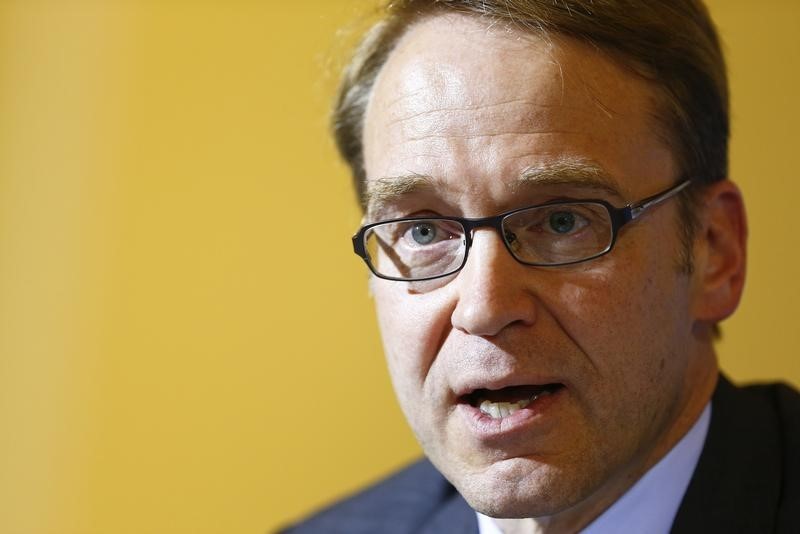BERLIN (Reuters) - Bundesbank President Jens Weidmann rejected on Tuesday suggestions that the European Central Bank might be deliberately pushing down the value of the euro and said any manipulation of exchange rates would be "dangerous".
Asked after a meeting of German and French ministers and central bankers in Berlin whether there had been any discussion about the ECB weakening the euro to help spark growth in the euro zone, Weidmann said "No".
"Of course the foreign exchange rate plays a role for us as it flows into the group of data that affects growth and future inflation developments," he said.
"And of course the different monetary policy stances on either side of the Atlantic play a role in determining the exchange rate level. The exchange rate is an important variable."
But he added: "I would differentiate between this and manipulation of exchange rates to win competitive advantage. That is a policy that does not fulfil our goals, that is dangerous. It could end up in a devaluation race that would produce only losers. But this is also a policy that no one I know is pursuing."
Weidmann's reference to the euro's exchange rate touches on the debate surrounding a policy measure the European Central Bank is discussing as a possible next step: sovereign bond buying, or so-called quantitative easing.
ECB Vice President Vitor Constancio said last Wednesday that embarking on such purchases would, among other things, have an impact on the euro exchange rate.

A weaker euro would help exporters in the euro zone, which is struggling to generate economic growth. The euro has shed more than 9 percent against the dollar this year, as investors price in a chance of outright bond-buying by the ECB.
(Reporting by Michelle Martin and Michael Nienaber; Writing by Noah Barkin and Paul Carrel; Editing by Robin Pomeroy)